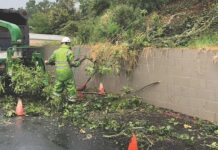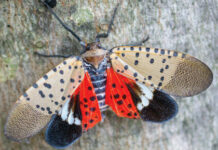
Horticulture and agriculture just made the list. Unfortunately, the list I’m referring to isn’t the best of them. Horticulture and agriculture are numbers 2 and 3, respectively, on The Daily Beast’s list of 20 Most Useless College Degrees.
According to their research, from 2008 and predicted through 2018, horticulture in the United States is set to lose 15,200 jobs while agriculture will lose 9,100 jobs in the same time period.
It’s not hard to see that horticulture and agriculture as career fields have a lot of competition today when compared to sexier fields, such as technology, especially for young students exploring college majors.
A study by the U.K.’s Royal Horticulture Society shows how younger job candidates feel about horticulture. According to their report, “Horticulture Matters,” nearly half of those who are less than 25 years old do not think gardening is a skilled career, and nearly 70 percent of 18 year olds think gardening should be considered as a career only for those who have failed academically.
“Basically, gardening is for dropouts, and if a young hoodie finds you weeding a flower bed in your local park, he’s likely to assume you’re carrying out a community service order; certainly nothing else would induce him to get dirt under his fingernails,” explains Ken Thompson, a plant biologist, in the UK Telegraph.
What’s more, 70 percent of 18 year olds do not think gardening is a career to be proud of, the RHS survey reveals. At what age does this change? The survey says 79 percent of those who are over the age of 40 have the exact opposite opinion.
What’s challenging for the U.K. is that in May 2013, RHS said they have “an alarming shortage of skilled professionals” in horticulture jobs, posing “a threat to Britain’s economy, environment and food security.” While the need is there, the applicants are not.
In the U.S., this is also a problem, and now some horticulturists are trying to fight the problem. According to Virginia Smith’s article in the Philadelphia Inquirer, six of the country’s most prominent plant people wrote a three-page letter, titled “Horticulture is Under Siege,” and sent it to 800 schools and universities, government agencies, industry associations and growers in December 2013 urging recipients to support a four-year remedial campaign to boost the rankings of plant scientists, breeders, students and others in the horticulture field so that it doesn’t become a forgotten art. The tactics highlighted in the campaign include a scientific study of the problem, an educational plan outlining how horticulture can be integrated into kindergarten through 12th grade curriculums and promoted on college campuses, and an advocacy and marketing strategy to raise public awareness of horticulture’s importance and career options.

As the Philadelphia Inquirer points out, horticulturists in both the United States and the United Kingdom say the crisis has been building for decades, significantly influenced by the population shift from farm to city, the globalization of the food and flower trades, and the loss of personal connection to the land.
“Think of all the careers horticulture is competing against. We need to make it sexier and more relevant in a highly competitive market,” Paul Redman, director of Longwood Gardens in Kennett Square, Pa., and a strong supporter of the campaign, explains in the piece.
In addition to a lack of funding, the campaign faces another challenge: a true understanding of the term horticulture and what a horticulture career can entail, industry experts say.
“Or, maybe we simply need to get across the message that growing plants is healthy, rewarding and fun, so why would you not want to be paid to do it for a living?” Thompson asks in the UK Telegraph.
Dr. Thomas Scott, dean of the College of Agriculture, Forestry and Life Sciences at Clemson University, responded to a similar article listing “College Majors That Are Useless.”
Scott challenges the word “useless” used in these studies, calling it an inflammatory adjective.
“Consider the useful nature of the consumables produced by agriculture, animal science and horticulture majors: An abundant and safe food supply, fibers for clothing and innumerable materials, stewardship for the soil, water, flora and fauna of our planet,” he says. “I believe the majority would strongly agree with me that these benefits are not useless at all. In fact, they are vital.”
Scott adds the U.S. Department of Agriculture reports through 2015 there will be a shortage of trained graduates to fill jobs available in agriculture, and he points out that surveys show agriculture professionals have a lower unemployment rate than the national average. He encourages people to better understand the vast array of agriculture careers and opportunities available.
Despite the negatives that seem to be stacking up against getting young folks interested in pursuing horticulture and agriculture degrees as “green” graduates dwindle, supporters of the campaign remain hopeful they can keep the field alive.
As Douglas Needman, education department head at Longwood Gardens in Kennett Square, Pa., says in the Philadelphia Inquirer: “I don’t want to see the art, science and the craft of horticulture die out.”
Nicole Wisniewski is a 16-year green industry veteran and award-winning journalism and marketing professional. She is currently a senior project manager in The Davey Tree Expert Co.’s marketing/corporate communications department. Reach her at nwisniewski@neo.rr.com.




























![[VIDEO] Dickies®: Discover Workwear That’s Anything But Uniform](https://turfmagazine.kinsta.cloud/wp-content/uploads/2023/06/1647663814-4b1a2a7742790a9b1e97a3b963477850192e1d6a9dfba9b07214a77bae25d6e3-d-324x160.jpg)


